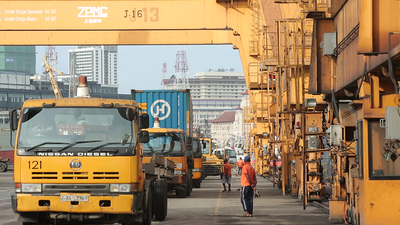Regional cooperation in services trade
The Association of Southeast Asian Nations (ASEAN) views trade in services as key to achieving regional economic integration since the services sector makes up nearly half of GDP in many member states. Sector liberalization is expected to create a competitive environment that generates more efficient services delivery across the region, leading to an expansion of productive capacity and economic development.
Challenges facing the ASEAN services industry include keeping up with the pace of technological innovation, benchmarking with international standards, enhancing investment and trade flows, and building human capital.
Increasing member investment in services will also promote the development of modern regional financial, communications, distribution and transport sectors. The services sector received 50% of total ASEAN foreign direct investment (FDI) in 2008, amounting to US$ 33.5 billion. By 2011 it received 58% of total ASEAN FDI flow to the tune of US$ 51.4 billion.
Increased investment is expected to foster the creation of a competitive environment, with better and more efficient delivery of services. In the meantime ASEAN’s services exports have more than doubled to US$ 260.9 billion in 2011 from US$ 120.7 billion in 2005. With the steady growth and opening up of the services sector, opportunities arise for local service providers to benefit from new market opportunities and innovative ideas.
Critical to the success of liberalization will be the ability of various stakeholders – government, academia, civil society and business – to cooperate in identifying issues for policy enhancement to support the goal of ASEAN economic integration in services.
As the organization continues to work towards achieving the planned free flow of trade in services by 2015 under the ASEAN Economic Community (AEC), the need to monitor progress against the ability of business to participate in, and benefit from, regional trade activities will be vital to its success.
This is a role to which the ASEAN Business Advisory Council has fully committed itself. The council, established more than a decade ago, provides feedback from the business community on policy issues that impact the successful realisation of the AEC. It conducts surveys and studies with the Lee Kwan Yew School of Public Policy in Singapore and the Economic Research Institute for ASEAN and East Asia in Jakarta. It then uses the findings to identify priority areas requiring further policy enhancement.
Surveys were conducted in 2013 on ASEAN competitiveness in trade and investment, the effectiveness of ASEAN policy initiatives to form an AEC by 2015, and the use of free trade agreements by private sector manufacturing and service firms.
The council has also been working closely with the International Institute for Sustainable Development to raise awareness about the AEC and to distribute a guidebook for small and medium-sized enterprises (SMEs) on how to navigate trade agreements and customs procedures in every member state.
Based on the findings of one survey, larger firms benefited more from regional economic integration than did SMEs and the lack of access to information and finance were the main problems SMEs faced. There is a clear need to address these issues to enable them to raise capacity, encourage their participation in trade activities, and benefit from the expected growth of regional trade in services. SMEs are mainly positioned to provide support services and their involvement in the trading process is critical to the AEC’s success.
This year, under Myanmar’s chairmanship, the council will focus on ascertaining the readiness of businesses to benefit from regional economic integration. A study will assist in identifying impediments to doing business within the region and refining related policies in a move towards achieving a successful AEC. This kind of initiative would push the efforts on regional economic integration in services in a positive direction.










